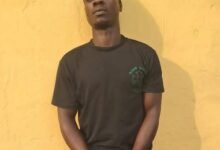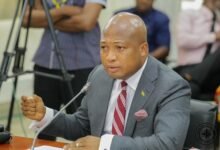
The National Commission for Civic Education (NCCE) has admonished the citizenry to unite and be actively involved in the fight against corruption.
It observed that though they were accelerating the campaign towards complete eradication of corruption in the country, a collective effort from the public was required to achieve the target.
Mr Setriakor Gagakuma, South Dayi District Director of the Commission, noted that the citizenry could become more activated, empowered and courageous to report any breach of financial management regulations or any act of corrupt practices in their institutions, agencies, departments or communities only when they were well informed about the dangers corruption posed to the individual and the country.
Mr Gagakuma made the admonition when the commission engaged some communities in the South Dayi District of the Volta Region as part of the second phase of the Accountability, Rule of Law and Anti-Corruption Programme (ARAP) aimed at making frantic efforts to tackle conditions that led to corruption, with sponsorship from the European Union (EU).
The engagement was also to sensitise the public on negative impacts of corruption and the need for all to get involved in the fight to tackle the menace that had impeded the socio-economic development of the country.
The commission visited four communities including Tsatee, Toh-Kpalime, Peki-Adzokoe and Kpalime-Duga and engaged staff of institutions including the Police Service, Ghana Education Service (GES), National Disaster Management Organisation (NADMO), National Health Insurance Authority (NHIA), Ghana Health Service (GHS) and the District Assembly on the need to extricate themselves from corrupt practices.
“Corruption persists in the country and requires a serious attitudinal change from the citizenry to do the right thing by following due process and upholding the law because only rightful attitudes can build the nation.
“The commission will advise the citizenry to desist from offering bribes to public officials to entice and persuade them to engage in acts contrary to what the law requires us to do,” Mr Gagakuma stressed. –GNA







